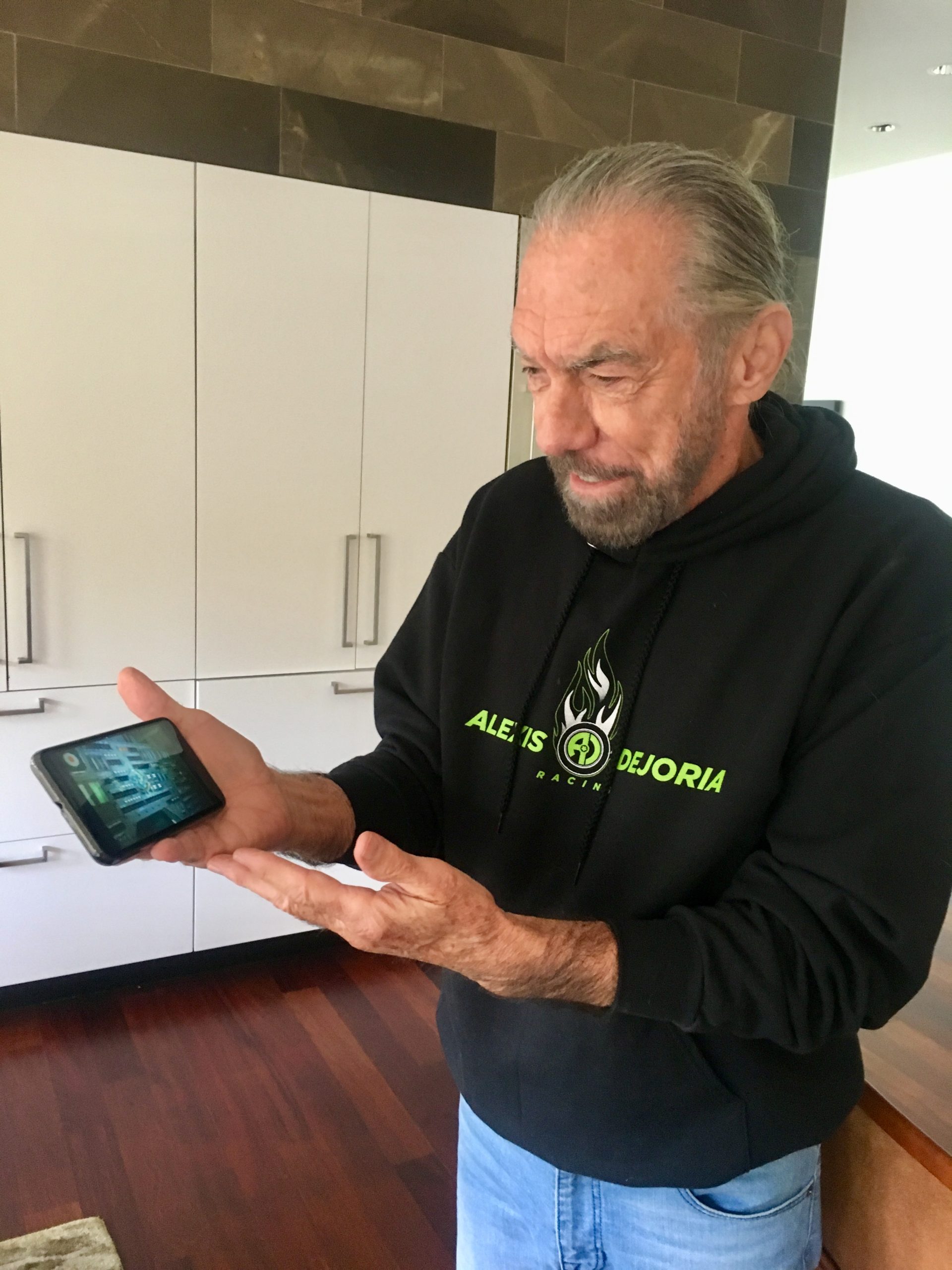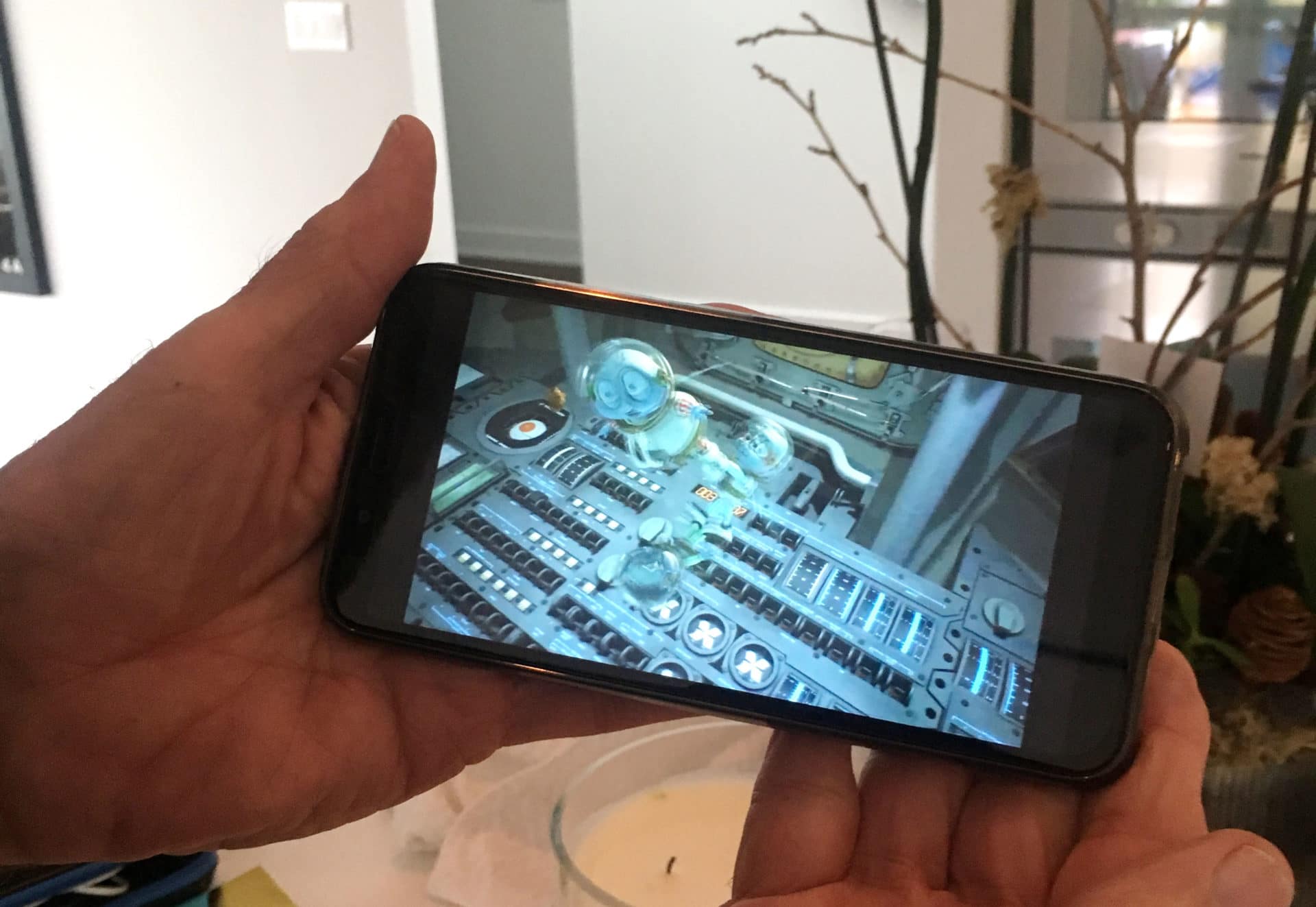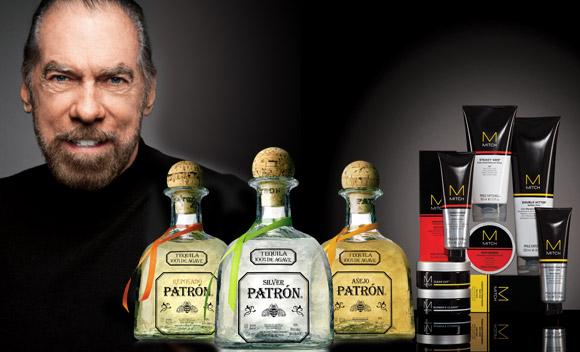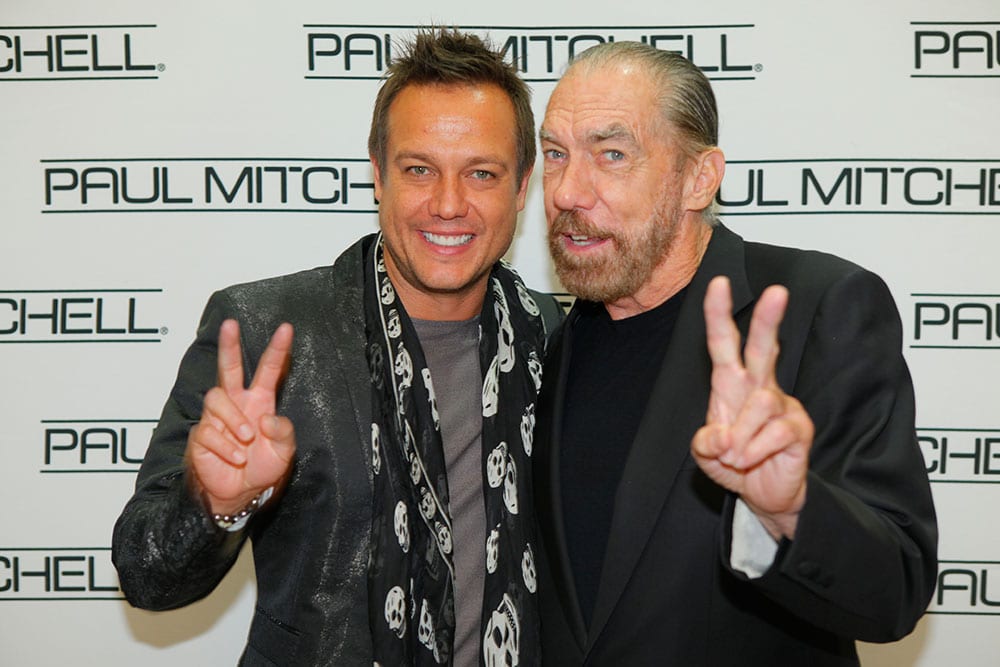John Paul DeJoria has no personal computer. He doesn’t use email, surf the internet or own a smartphone. He’s never downloaded an app.
“I have time to think,” he says. “I don’t have to go on the computer or telephone to know who sent what message when. I don’t need to know what celebrities are thinking about everything, nor do I want to.”
The self-proclaimed troglodyte has done just fine without many trappings of the digital age, thanks to great managers who regularly update him and his ability to “see outside the box.”
The successful philanthropist and entrepreneur — best known for haircare giant John Paul Mitchell Systems and tequila brand Patrón Spirits International — has a net worth estimated at more than $3 billion. Earlier this year, DeJoria (known as JP to his friends) sold his 70 percent stake in Patrón to Bacardi Limited in a $5.1 billion deal.
“I can see objectively what the end consumer wants,” says DeJoria. “Plus, I know a little something about business and marketing.”
And that might be a bit of an understatement.
Biggest Deal Yet
At 74, DeJoria is working as hard as he was in his 30s. He expects to live to 125 or older. And he says he’s building his biggest company to date — one he estimates will be valued at more than Patrón and Paul Mitchell combined.

ROK Mobile — which he cofounded in 2013 with British entrepreneur Jonathan Kendrick — recently launched ROKiT, a smartphone that bundles talk, text and entertainment with a comprehensive lifestyle package that includes free access to telemedicine services, discounted pharmaceuticals, family legal services, insurance (accidental death, burial and identity theft) and international calls.
In the first quarter of 2019, ROKiT will offer a line of Android-powered 3D phones that allow users to experience exclusive content in 3D — with a library of more than 500 movies and growing — on their phones without using glasses. With a price point of less than $300, cutting-edge technology and a unique bundle of offerings, DeJoria believes ROKiT could become the world’s top smartphone. “Nobody has seen anything like this,” he says.

On a sunny Saturday morning in Austin, DeJoria cheerfully welcomes a visitor into the spacious Austin lakefront home where he now spends the majority of his time. He shares it with his wife of 25 years, Eloise DeJoria, an actress, model and passionate philanthropist. They have a combined family of six children, 10 grandchildren and one great-grandchild.
Wearing a black sweatshirt and jeans, his salt-and-pepper hair pulled back into its signature ponytail, DeJoria can’t wait to show off a model of the 3D ROKiT. Animated space creatures spin around as a peanut appears to float off the screen. “Watch it eat the peanut!” he says gleefully. His eyes twinkle as he looks at the response of his guest. “Isn’t this amazing?”
Successful 51% of the Time
ROK Mobile is just one of DeJoria’s many investments, which span industries as diverse as organic farming, cosmetics, clean water, aviation, hospitality and energy. They include Bogart Spirits (a high-end gin and whiskey brand) and Aubio (a plant-based treatment for cold sores).
“I haven’t been successful in everything,” he says. “But I’ve been successful 51 percent of the time.”

DeJoria is a capitalist who believes you do well and do good, and the better you do, the greater your capacity to make a difference.
His is the story of a guy who did well, then did good — an enormous amount of good. His story was chronicled in the 2016-17 documentary Good Fortune, which is narrated by actor, friend and former business partner, Dan Aykroyd.
“Most of what I do is philanthropically involved, even businesses,” says DeJoria. “The more money I make, the more I give back.”
The second son of an Italian father and a Greek mother, he grew up in East Los Angeles. His father left before DeJoria was 2 years old and his mother struggled to support the family. She was unable to take care of her two young sons while she worked and DeJoria and his brother went into foster care, seeing their mother on weekends.
A Born Salesman
Entrepreneurial even at a young age, DeJoria sold Christmas cards door to door and got a paper route. He graduated from LA’s John Marshall High School but didn’t have the grades to get a college scholarship. Instead, he joined the Navy for two years.
When he returned from the Navy, he and his young son were evicted from their apartment and lived briefly out of his car, picking up soda bottles to recycle for a few cents each. A friend in a biker gang invited him to live in one of his rooms. While staying there, he developed his lifelong love of motorcycles. (His personal motorcycle fleet includes a 2004 Harley-Davidson chopper, a 2010 BMW Sidecar model and a 2008-2009 Arlen Ness & Victory, re-calibrated to run off either Patrón tequila or gasoline.)
Over the next few years, he held nearly a dozen jobs, including encyclopedia salesman, tow-truck driver and janitor. He got his entrée to the haircare industry when he joined Redken Laboratories in 1971 as a sales rep — a job he was fired from in a disagreement over business strategy.
Empire Built on $700
In 1980, he started a venture that would change the course of his life. He scrounged together $700 with friend and struggling hairstylist Paul Mitchell to start John Paul Mitchell Systems. At the time, he was living in his car again after a failed relationship, showering by the pool at Griffith Park.
DeJoria and Paul Mitchell sold three products — Shampoo One, Shampoo Two and The Conditioner — door-to-door to salons in the Los Angeles area. They struggled for the first two years. But by year three, they broke $1 million by year and the white bottles with the futuristic black font had become a staple in bathrooms everywhere. Paul Mitchell died in 1989 but his son, Angus, is the co-owner of the company.
Today, Paul Mitchell Systems produces over 300 products and is available at more than 100,000 hair salons worldwide and over 100 cosmetology schools. As the company’s charismatic chairman, DeJoria has attained cult-like status with the stylists. The feeling is mutual: “I think hairstylists are the coolest, most fun people,” says DeJoria.

And Paul Mitchell, he says, has opened the door to starting so much of his subsequent success. “Today I’m a multi-billionaire. If it wasn’t for Paul Mitchell, I couldn’t have done what I have done.”
One of DeJoria’s most successful ventures started — like many good things — over a couple of margaritas. DeJoria and friend Martin Crowley were complaining about the quality of the liquor; Crowley promised to bring him back some tequila from a trip to Mexico.
Instead, Crowley came back with an attractive hand-blown tequila bottle and an idea to launch a premium tequila brand. DeJoria agreed to give it a try, and Patrón Spirits was born. When the first 12,000 bottles hit the market in 1989, there wasn’t necessarily a high demand for $40 tequila. In fact, they got laughed at by some skeptical distributors. But Patrón grew into the world’s largest selling super-premium tequila brand, establishing a new category of high-end tequila. At the time of the sale to Bacardi, Patrón sold 3 million cases annually.
Conscious Capitalist Before It Was Cool
DeJoria has always believed that success comes with a responsibility to give back. In fact, he believes it is an obligation for companies to do something for the community and society.
“He was doing conscious capitalism before it was cool,” Good Fortune filmmaker Josh Tickell told the Los Angeles Times. “He’s the kind of guy who is personally and physically invested in the people he helps. He rolls his sleeves up and takes on the accountability of making things better.”
In 2004, DeJoria received the Horatio Alger Award — a prestigious award given each year to someone who has achieved success in the face of adversity.
In 2011, he joined more than 170 members of the Giving Pledge — a charitable campaign led by Warren Buffett and Bill and Melinda Gates for people who commit to giving away at least half of their wealth to charity.
That same year, he founded JP’s Peace, Love and Happiness Foundation with his family to invest in charities that share the core values of his companies: sustainability, social responsibility and animal-friendliness. Based in Austin, the foundation has global reach through partners located around the world. Through his foundation, he has raised millions of dollars to support more than 160 charities around the world. Many of his investments are driven by the interests and personal relationships of DeJoria, his wife Eloise and his kids. DeJoria supports veterans’ causes, protects waterways and animals.
He is especially passionate about helping people struggling with homelessness, as he once was. He created and funds Grow Appalachia — the largest program of its kind in the United States that has partnered with more than 5,300 families to grow 3.4 million pounds of food throughout the Appalachian region.
In Austin he has helped build an innovative community with Mobile Loaves & Fishes that helps the homeless learn skills, earn income and get affordable housing
His wife, Eloise, has a special passion for organizations that advocate for the empowerment of women. On the day of this interview, Eloise had just left the house to work at Eloise House which provides forensic exams and support services to survivors of sexual assault, all free of charge.
DeJoria also found a way to weave his motorcycle hobby into his philanthropic efforts. Every year around his birthday, he hosts the Peace, Love & Happiness motorcycle ride — as well as motorcycle rides in Nashville and Sturgis, South Dakota — with all the proceeds from the ride benefiting charities serving local paramedics, police officers, firefighters and military heroes.
ROKiT Doing Good
Which gets us back to ROKiT. While it aims to become one of the world’s leading telecom companies, DeJoria believes he will be building a company that will do incredible good in addition to making a lot of money.
With its low-cost — made possible by relying on word of mouth rather than expensive advertising — he believes ROK is democratizing mobile technology.
He recently sponsored a special Thanksgiving dinner for the Veterans Advocacy Group of America. In addition to personally serving dinner to the veterans, DeJoria donated 150 phones pre-loaded with a special package just for veterans, including free talk and text and 12 months of family telemedicine and pharmacy services, including 75 percent off prescriptions.
The company’s joint venture with Indian telecom company Veecon, a deal signed in October, will bring public Wi-Fi connectivity to India’s 25 largest cities. The company, which is a joint venture between Veecon Group India and ROK, is investing $5 billion over the next five years to build the network using technology developed by NASA. Yes, there is huge profit potential when you go into a country with more than 1.3 billion people. But DeJoria says that’s not his main motive. He says that in India he wants to encourage economic expansion across the country and bridge a digital divide where hundreds of millions of people currently don’t have high-speed internet access.
“We are looking at what good can we do for the greatest number of people,” DeJoria says. “Through Wi-Fi we are trying to give something to people who will give back to the economy in their own way.”
LEAVE A REPLY
The ideas expressed here are solely the opinions of the author and are not researched or verified by AGEIST LLC, or anyone associated with AGEIST LLC. This material should not be construed as medical advice or recommendation, it is for informational use only. We encourage all readers to discuss with your qualified practitioners the relevance of the application of any of these ideas to your life. The recommendations contained herein are not intended to diagnose, treat, cure or prevent any disease. You should always consult your physician or other qualified health provider before starting any new treatment or stopping any treatment that has been prescribed for you by your physician or other qualified health provider. Please call your doctor or 911 immediately if you think you may have a medical or psychiatric emergency.



[…] a wrench in that story line. After splitting with her husband at the age of 33, Tammy moved back to Austin and became CEO of the local chapter of the Make-A-Wish Foundation. And then she had to take on a […]